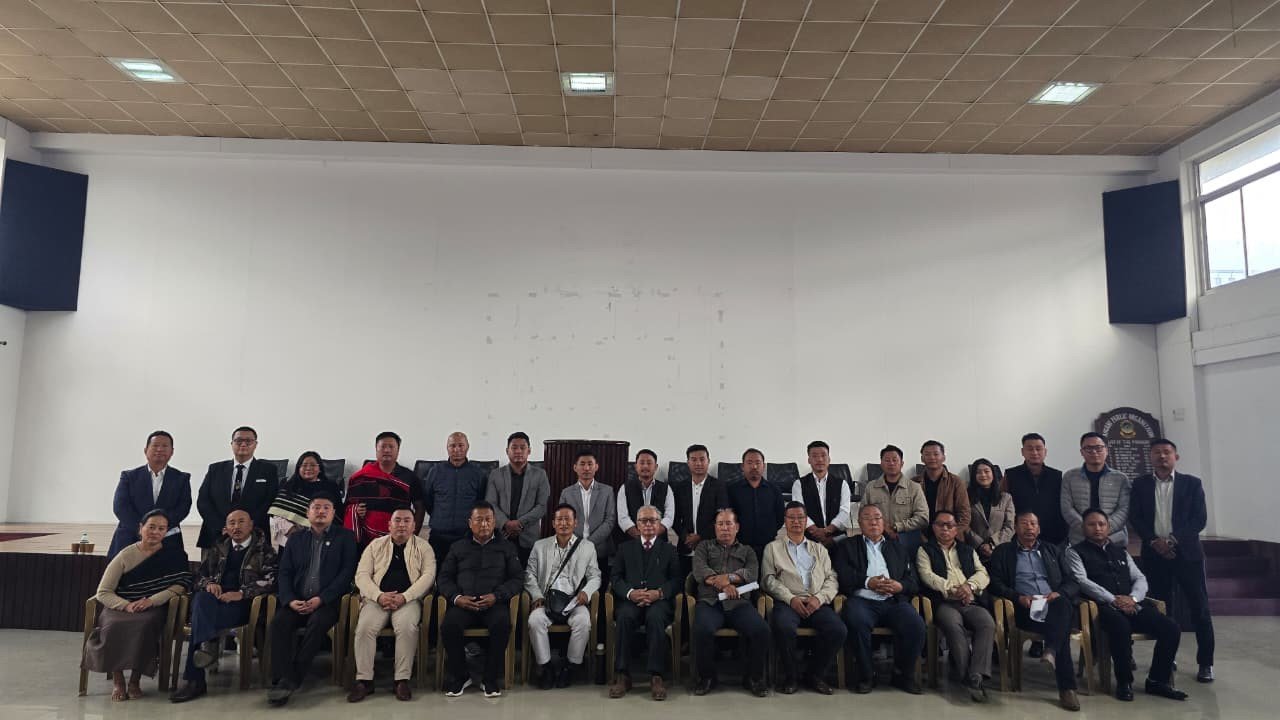The Naga Students’ Federation (NSF), Angami Public Organisation (APO) and Angami frontal organisations held a coordination meeting on Inner Line Regulation (ILR) November 19 at APO Hall, Kohima.
The meeting was held as part of NSF’s ongoing campaign to strengthen the enforcement of the Inner Line Pass (ILP) system and to collectively address the growing concerns over the unchecked influx of illegal immigrants into the Naga homeland.
During the meeting, APO president Theja-o Vihienuo underscored the importance of collective responsibility in safeguarding the identity, security and demographic balance of the indigenous Naga people. He informed that APO has constituted a Core Committee on ILP to address concerns related to ILP more systematically.
Extending APO’s cooperation to NSF initiative, Vihienuo stressed on the necessity of youth empowerment and sustainable livelihood opportunities so that dependency on migrant labour can be significantly reduced, thereby addressing the root causes of the increasing inflow of migrant workers.
Download Nagaland Tribune app on Google Play

Delivering the keynote address, NSF president Mteisuding highlighted the pressing challenges and systemic lapses that continue to hinder the effective implementation of the ILP system in Nagaland. He emphasized that strengthening ILR mechanisms is not merely an administrative requirement but a historical and moral imperative to protect the rights, land and future of the Naga people.
A detailed presentation on ILR sensitization was delivered by NSF Inner Line Regulation Committee (NSF-ILRC) chairman NSN Lotha, who reiterated the urgent need for the government of Nagaland to take serious cognizance of the recommendations submitted by the NSF.
Key among these recommendations is the establishment of ILP checkpoints at Dimapur Airport and Dimapur Railway Station, which remain major entry points for non-indigenous individuals entering the state. Lotha also called for stricter monitoring and robust enforcement mechanisms. In his appeal, he sought the unwavering support and cooperation of the APO and its affiliated organizations.
NSF-ILRC member K Andrew Yhome also presented a comprehensive overview of the purpose and objectives of the NSF-led ILR campaign.
Meanwhile, the Angami Women Organization (AWO), represented by its president Neithono R. Sothu, expressed its fullest support and cooperation to the ILR initiative, reaffirming the role of Naga women in community vigilance and social responsibility.
The Angami Students’ Union (ASU) president Diezevisie Nakhro lauded the NSF for taking proactive steps to curb the influx of illegal immigrants into the Naga homeland. He reiterated ASU’s commitment to extend full cooperation in the collective effort to preserve the identity, culture and security of the indigenous populace.
The coordination meeting concluded on a strong and positive note, with all participating bodies expressing a shared resolve to collaborate closely towards the strengthening of Inner Line Regulation in the state. The NSF extends its sincere appreciation to APO and all its frontal organizations for their solidarity and commitment to this common cause.

